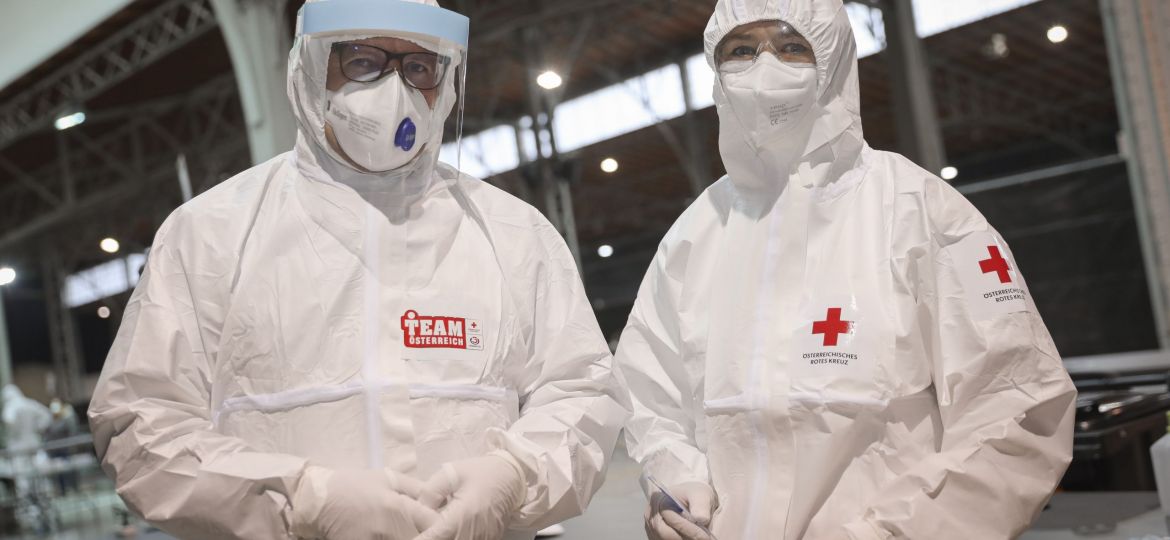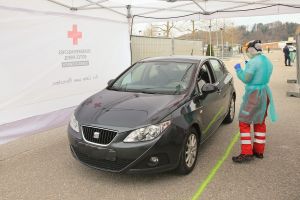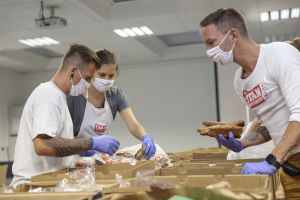
The Role of the Austrian Red Cross with the Sars-CoV-2 Pandemic
The first case of the Coronavirus was identified in Austria on 25.02.2020. However, the Ministry of Health and other health related agencies were closely monitoring the situation worldwide since the first cases were reported on Dec 2019 and January 2020.
The Austrian Red Cross plays an auxiliary role in the country and is the largest humanitarian organisation in Austria. They not only provide emergency and rescue services, but several social programmes that are in place at national and international level.
Considering its large expertise in disaster management, the Austrian government seek support from the Austrian Red Cross for the management of the pandemic. Experienced emergency managers were working closely with different ministries while the local response started to adapt their services.
Red Cross volunteers needed to be trained on how to deal with the virus as well as in the use of the personal protective equipment (PPE). Different testing stations were setup across the country. Volunteers started to support the hotlines and provided psychosocial support to staff and the population.
The increasing need for contact tracing has motivated the Austrian Red Cross to develop a smartphone app (Stop Corona App) that allows citizens to be notified if they were in close contact with persons positive for Coronavirus. This app has been downloaded by more than 1.4 million Austrians. Other communication strategies were developed, targeting different age groups while promoting different messages ranging from hand hygiene, self-care, testing and vaccination.


One of the strategies of the government was to identify new infections as soon as possible and the government started a mass testing campaign across the country. This campaign was heavily supported by the Austrian Red Cross and trained volunteers started collecting samples at home as well as in testing stations that runs the 7 days of the week. The strategy has positioned Austria as one of the top countries for test per inhabitant.
Currently, The Austrian Red Cross is supporting the vaccination activities and is collaborating with other EU institutions, like DG- Sante, for increasing testing capabilities. As of 29.06.2021, the Austrian Red Cross has provided the following services since the beginning of the pandemic:
- Medical Transport of more than 100,000 infected persons.
- More than 9 Million Samples tested.
- Almost 1 Million calls attended on the Covid Hotline.
- More than 950,000 vaccines.
- Around 100 mobile teams working on a daily basis for the collection of samples
- 110 tests stations
- Around 4,500 people on duty in the regular rescue and ambulance service every day.
- Contributed with logistics experts to buy protective equipment on the world market in the first phase of the pandemic.
Beside these activities, the Austrian Red Cross also adapted its regular activities according to the new Corona Restrictions. Such activities include:
- Blood donation services that collected more than 600 blood donations with antibodies from corona-survivors to be used for Corona-therapy in hospitals.
- Teaching programs for kids and young people that need support so, they can stay in school.
- Increased numbers of spontaneous volunteers registered trough the “Team Österreich” Methodology. Team Österreich is a methodology developed by the Austrian Red Cross in collaboration with Ö3 radio with the aim of include citizens into the relief activities following a disaster.


How Europe could be better prepared for the next pandemic
The pandemic has affected all countries in a way never seen before. Taking into account the experiences from the last months, we can see that not only the health of population was affected, but also the wellbeing spheres around any person such as employment, psychosocial areas, financial, social, intellectual, environmental and physical.
Other large disasters that have occurred in the last year like the Croatian earthquake in December 2020 or the Lebanon Explosion in August 2020; has shown that a multihazard approach needs to be considered when preparing and responding to future emergencies. The resources allocated to a specific disaster may decrease the capacity to respond to other large-scale emergencies.
The different definitions of the disease and it related terms (e.g Deaths from Covid vs Deaths with Covid) among countries made it difficult to reach a common understanding of the appropriate measures taken. Working with PANDEM-2, the Austrian Red Cross, along with other pandemic managers are working to ensure that Europe is better prepared for the next pandemic.
Other lessons learnt were already identified by the EU and are published under the following link

